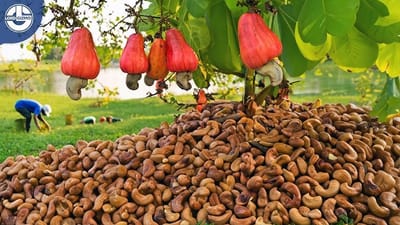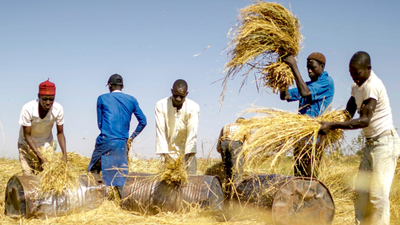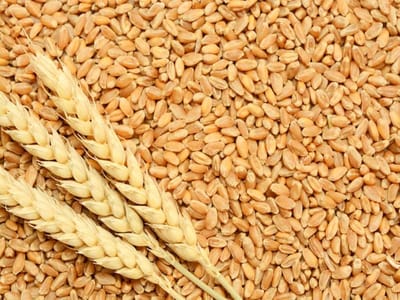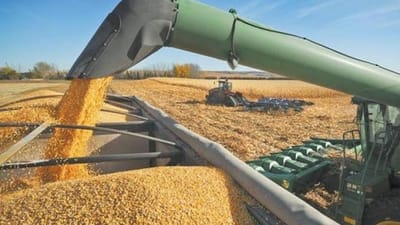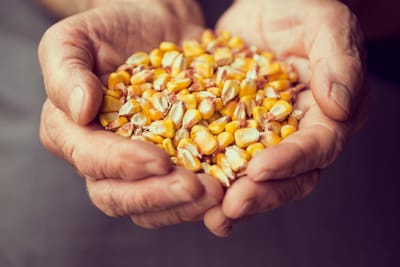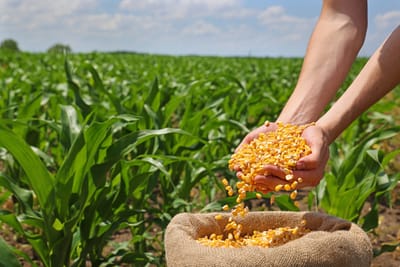MAIZE #Africa Agri News
Tunisia’s recurring soft wheat tenders aren’t just a local story—they’re a bellwether for global agricultural markets. As the North African nation scrambles to secure its wheat supply against a backdrop of drought, domestic production shortfalls, and geopolitical shifts, investors are being handed a unique opportunity to capitalize on structural demand trends in global commodities.Tunisia’s wheat imports have surged in recent years, with the 2024/25 season projecting a staggering 1.8 million metric tons of imports to meet domestic consumption of 2.89 million metric tons. This dependency isn’t a temporary fix—it’s a structural shift driven by three key factors: 1. Domestic Production Constraints: Tunisia’s wheat output remains stubbornly low, averaging 1.25 million metric tons annually. Droughts and soil salinity issues in key growing regions like Kairouan and Sousse have made self-sufficiency a distant dream.
Read MoreThe Africa cashew market is experiencing robust growth driven by increasing global demand, particularly from Asia and Europe. West African countries such as Ivory Coast, Ghana, and Nigeria dominate production, collectively contributing over 60% of global cashew nut exports. Favorable climatic conditions and expanding farmland area have supported higher yields. However, the market faces challenges like fluctuating international prices, limited processing capacity within Africa, and infrastructural constraints. Governments and private sectors are investing in improved farming techniques and processing facilities to capture more value locally.
Read MoreThe German Government has inaugurated the Carbon Offsetting Rice Emissions (CORE) project to support 12,000 smallholder farmers in climate-smart rice production across Benue, Nasarawa, and Kano States.
Read MoreThis ambitious target more than doubles the 2,597 tonnes harvested in the previous season, signaling the country’s commitment to reducing its dependency on wheat imports. Since launching a national wheat cultivation recovery plan in 2023, Burkina Faso has emerged as one of the few West African nations prioritizing large-scale wheat production.
Read MoreBased on the premise that there are sufficient supplies for the local market, the Zimbabwe government has reinstated a ban on maize imports.Quoting a news report by Reuters, agricultural economist Wandile Sihlobo says the government wants to ensure maximum price realisation for the domestic producers before allowing imports
Read MoreDriven by rising demand for maize oil in Africa, the market is expected to start an upward consumption trend over the next decade. The performance of the market is forecast to increase slightly, with an anticipated CAGR of +1.1% for the period from 2024 to 2035, which is projected to bring the market volume to 336K tons by the end of 2035. In value terms, the market is forecast to increase with an anticipated CAGR of +4.6% for the period from 2024 to 2035, which is projected to bring the market value to $699M (in nominal wholesale prices) by the end of 2035.
Read MoreTANZANIA – The Tanzania Bureau of Standards (TBS) has introduced the 2024 food fortification regulations, making it mandatory for staple foods such as maize flour to be enriched with essential nutrients in a nationwide effort to tackle malnutrition.
Read MoreSOUTH AFRICA – South Africa’s trade surplus has fallen sharply, dropping by R34 billion (US$1.89 billion) in a single quarter, largely due to weaker mining outputs and a notable decline in maize exports, according to the latest figures from the South African Reserve Bank’s balance of payments report.
Read MoreZimbabwe has recently reinstated a maize import ban (end of August 2025), citing a bumper harvest which has made the country largely self‑sufficient for its milling/corn demand.
Read MoreMarket forecast to grow to 233K tons and $860M by 2035 despite a recent slowdown Ethiopia, Democratic Republic of the Congo, and Egypt lead in both consumption and production Uganda, Kenya, and Cote d'Ivoire have the highest per capita consumption rates Namibia is the largest importer by volume, while South Africa's exports command the highest price Intra-African trade is modest, with exports from Kenya, Uganda, and South Africa dominating.
Read More
